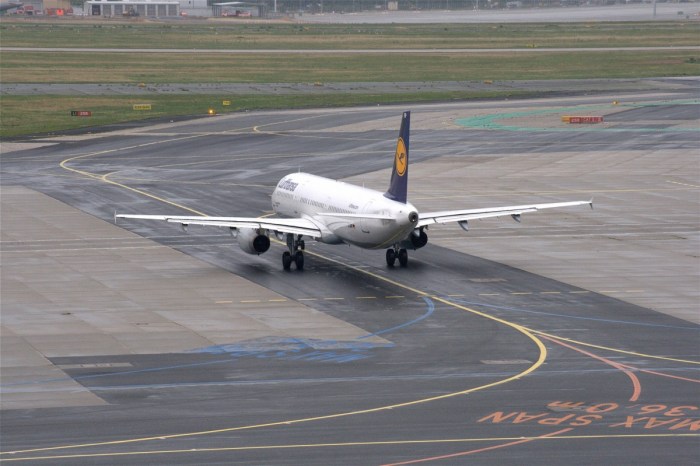
With travel agent side hustle pay at the forefront, this exciting venture offers a unique opportunity for those seeking additional income while exploring the world of travel. Imagine turning your passion for travel into a rewarding side hustle that not only enhances your financial stability but also allows you to help others create unforgettable experiences.
This guide dives into the financial benefits of becoming a travel agent, revealing potential earnings and commission structures, while also addressing vital factors that can influence pay rates. Whether you’re looking to transition into this role or simply curious about how to maximize your income, this overview will equip you with essential insights into this thriving industry.
Overview of Travel Agent Side Hustle Pay
Starting a side hustle as a travel agent can be an exciting and financially rewarding opportunity. With the right approach and dedication, individuals can tap into a lucrative market by helping others plan their dream vacations. The financial benefits of this side hustle can vary widely depending on commission structures and the volume of client bookings.Travel agents often earn money through commissions from travel suppliers, such as hotels, airlines, and tour operators.
For instance, agents may receive a commission of 10-20% on hotel bookings and 5-10% on cruise packages. Successful agents who build a strong client base can potentially earn several hundred dollars a month, and in some cases, even thousands if they specialize in niche markets or high-value trips. Several factors influence pay rates for travel agents, including experience level, the types of services offered, and the geographic market served.
Agents who take additional training or specialize in certain types of travel, such as luxury vacations or adventure travel, can often command higher fees.
Travel Agent vs. Travel Advisor
The roles of a travel agent and a travel advisor are often confused, though they have distinct responsibilities. A travel agent primarily focuses on booking travel arrangements for clients, making reservations, and handling transactions. In contrast, a travel advisor takes a more consultative approach, offering personalized travel planning services and providing expert advice tailored to the client’s preferences.Both positions require strong communication and organizational skills, but a travel advisor often needs a deeper understanding of travel trends and destination knowledge.
Pay rates can differ significantly; while a travel agent may earn an hourly wage or commission, a knowledgeable travel advisor can charge clients consultation fees, leading to potentially higher earnings.Both roles can significantly contribute to a successful side hustle, as they cater to different aspects of travel planning, allowing agents and advisors to market their services effectively.
Travel Agent Jobs and Training
Aspiring travel agents typically need to undergo specific training and certifications to thrive in the industry. While formal education is not always required, many successful agents complete training programs that provide a strong foundation in travel booking systems and customer service. Certifications from recognized organizations, such as The Travel Institute or the American Society of Travel Advisors (ASTA), can enhance credibility and attract clients.Online training programs are plentiful, with options ranging from self-paced courses to live webinars.
Notable programs include the Travel Agent Academy and the International Air Transport Association (IATA) certification courses. The job market for travel agents has seen an uptick in demand, particularly post-pandemic, as people are eager to travel again. Pay scales can vary widely based on location and experience, but entry-level agents can expect to earn around $30,000 to $40,000 annually, while experienced agents can make upwards of $60,000 or more.
Travel Accessories for Agents
Having the right travel accessories can significantly enhance the experience for both travel agents and their clients. Essential accessories include portable chargers, travel organizers, and quality luggage that can withstand the rigors of travel. These items not only facilitate smoother travel experiences but also reflect professionalism during client interactions.Travel agents can utilize accessories like branded travel kits or custom luggage tags as part of their service offerings, adding value and a personal touch to client interactions.
- Portable Chargers: Keep devices charged during long travel days.
- Travel Organizers: Help keep documents and essentials neatly arranged.
- Quality Luggage: Ensure durability and ease of transport.
- Personalized Travel Kits: Offer clients a memorable touch.
Travel Apps and Technology
In the digital age, various travel apps can help agents streamline their operations and improve client service. Apps like TripIt, Kayak, and Google Maps offer functionalities that simplify itinerary management, booking comparisons, and navigation.When comparing these applications, consider factors like user-friendliness, features, and customer support.
| App Name | Functionality | User Rating |
|---|---|---|
| TripIt | Itinerary management | 4.8/5 |
| Kayak | Flight and hotel comparison | 4.5/5 |
| Google Maps | Navigation and location discovery | 4.7/5 |
Travel Anxiety and Client Support
Travel agents play a crucial role in helping clients manage travel anxiety, a common concern for many travelers. By providing reassurance and practical solutions, agents can help clients feel more confident and prepared for their trips.Strategies that agents can implement include offering thorough pre-travel consultations, creating detailed itineraries, and maintaining open lines of communication throughout the travel process. Additionally, agents can provide clients with resources such as travel insurance options and mental health support tools.
- Pre-Travel Consultations: Addressing specific concerns.
- Detailed Itineraries: Reducing uncertainty for travelers.
- Open Communication: Ensuring clients feel supported.
Travel Brochures and Marketing Materials
Creating effective travel brochures is essential for attracting potential clients. These materials should incorporate visually appealing designs and informative content that highlights unique travel packages and services offered by the agent.Key components to include in travel brochures are:
- Catchy Headlines: Grab the reader’s attention.
- High-Quality Images: Showcase travel destinations.
- Clear Service Descriptions: Explain what you offer.
- Client Testimonials: Build trust through social proof.
Travel Blogs and Content Creation
Travel blogs serve as a valuable resource for both travel agents and clients. Popular blogs can inspire agents with ideas for their own content creation, focusing on client engagement and travel tips.Ideas for blog content that travel agents can implement include destination spotlights, travel hacks, and personal travel stories that resonate with readers.
- Destination Spotlights: Highlighting popular or hidden gem locations.
- Travel Hacks: Sharing tips for budget-friendly travel.
- Client Stories: Showcasing successful travel experiences.
Travel Advisory and Safety Information

Travel advisories significantly impact how travel agents plan and recommend trips. Staying updated on advisories for various destinations ensures agents provide accurate and safe guidance to their clients.It’s vital for agents to monitor travel advisories from trusted sources, as these can affect booking decisions and client safety recommendations.
| Advisory Source | Benefits for Agents |
|---|---|
| U.S. Department of State | Official travel alerts and safety information |
| World Health Organization (WHO) | Health advisories and travel restrictions |
| Centers for Disease Control and Prevention (CDC) | Health guidelines for international travel |
Travel America and Domestic Travel Trends
There has been a noticeable increase in domestic travel trends across America, spurred by changing travel preferences and circumstances. Travelers are more inclined to explore local destinations, making this a prime opportunity for travel agents to tap into new markets.Popular domestic destinations such as national parks, beach resorts, and urban getaways present a wealth of opportunities for agents to provide specialized services, including customized itineraries and exclusive packages.Travel agents can leverage these trends by offering targeted marketing campaigns and developing partnerships with local businesses to enhance service offerings for clients looking to explore domestic travel options.
Conclusive Thoughts
In summary, embarking on a travel agent side hustle can be both rewarding and profitable, offering a flexible way to generate income while indulging in your love for travel. With the right training and resources, anyone can tap into this lucrative opportunity and support others in planning their dream vacations. So, whether you’re contemplating this path or already on your way, remember that the journey of becoming a successful travel agent is filled with potential and excitement.
General Inquiries
What is the average pay for a travel agent?
The average pay for a travel agent can vary widely, ranging from $30,000 to $60,000 annually, depending on experience and commission structure.
Do travel agents earn commissions?
Yes, travel agents often earn commissions from bookings made through various suppliers, which can significantly augment their income.
How can I start a side hustle as a travel agent?
Starting as a travel agent typically requires obtaining certifications, choosing a niche, and potentially joining a host agency to gain access to resources and support.
Are there startup costs involved in becoming a travel agent?
Yes, startup costs can include training fees, marketing expenses, and initial investment in technology and tools to facilitate bookings.
Is it possible to work as a travel agent part-time?
Absolutely! Many travel agents work part-time, allowing them to manage their schedule while pursuing their passion for travel.







